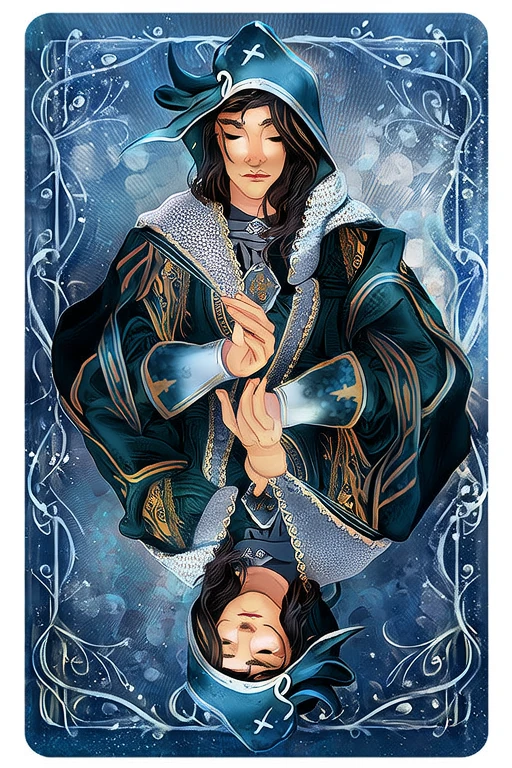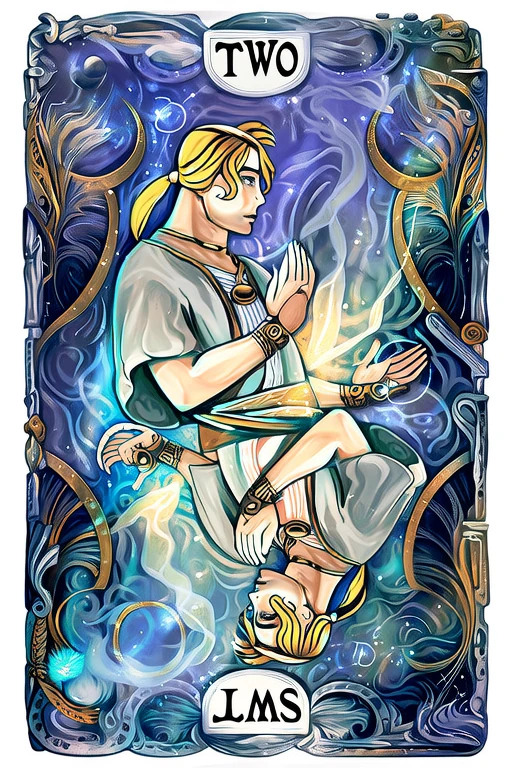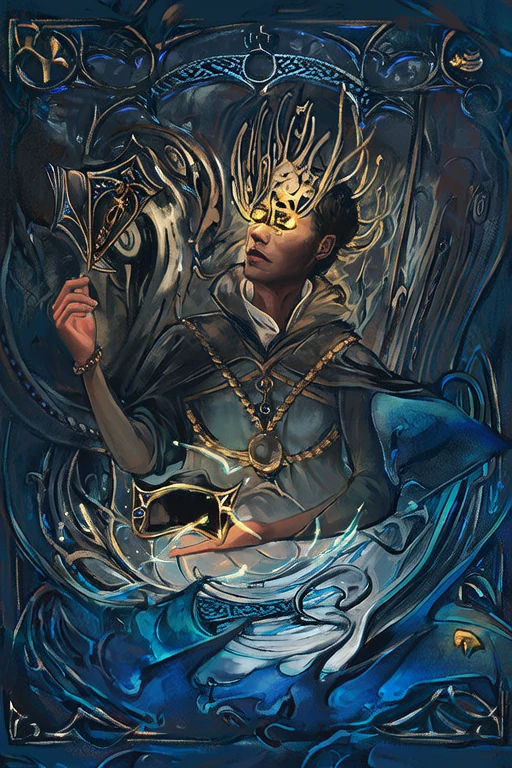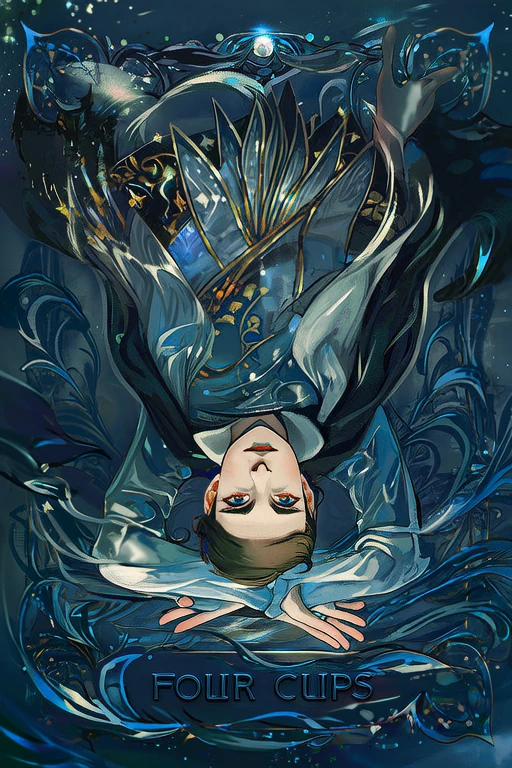
King of Cups
Discover the deep meaning of King of Cups with our free AI-powered tarot interpretation. Get instant, accurate readings based on advanced tarot knowledge.
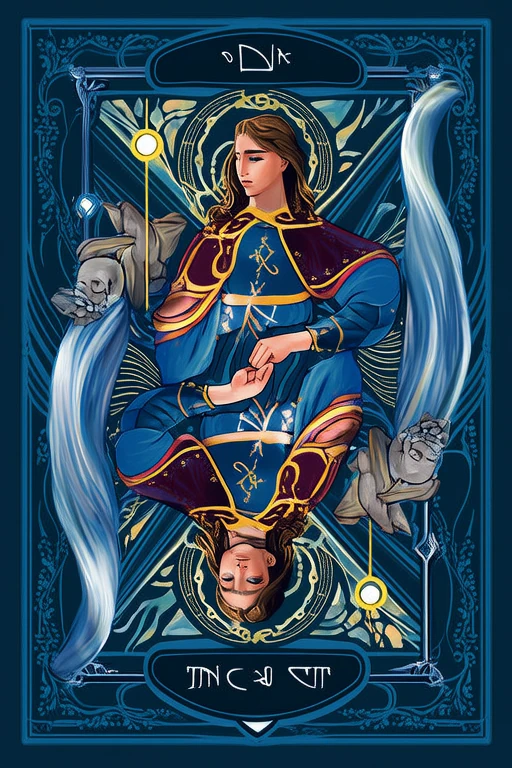
Keywords
Upright Meaning
Emotionally balanced, compassionate, diplomatic
Reversed Meaning
Coldness, moodiness, bad advice
Full Interpretation
The King of Cups represents emotional balance, compassion, and diplomatic leadership.
In-Depth Analysis
📜 Historical Background
The King of Cups is one of the 56 Minor Arcana cards in the traditional tarot deck, specifically belonging to the suit of Cups, which corresponds to the element of Water and is often associated with emotions, intuition, and the subconscious. Its origins trace back to early tarot decks of the 15th century in Europe, particularly in Italy and France, where tarot was first used not for divination but as a card game called 'tarocchi' or 'tarot.' The earliest surviving tarot decks, such as the Visconti-Sforza and the Marseille Tarot, depicted court cards with varying levels of detail and symbolism, including the King of Cups.
In these early decks, the King of Cups was often illustrated as a regal figure seated on a throne, holding a large cup or chalice, symbolizing emotional mastery and wisdom. The imagery was influenced by medieval European court structures, where kings represented authority, control, and leadership. Over time, especially during the occult revival of the late 19th and early 20th centuries, the card's meaning began to evolve beyond its literal representation into a more symbolic and spiritual archetype.
The Hermetic Order of the Golden Dawn and later the Rider-Waite-Smith Tarot, illustrated by Pamela Colman Smith under the guidance of A.E. Waite, played a significant role in shaping the modern interpretation of the King of Cups. In the Rider-Waite-Smith deck, the King of Cups is depicted as a calm, mature man seated on a throne with a sea in the background, symbolizing emotional depth and control. His fish-tailed throne reflects the connection to the element of Water and the zodiac sign Pisces, which is often linked to this card.
Throughout history, the King of Cups has been associated with figures of emotional intelligence, such as healers, artists, and counselors. In some interpretations, he has been linked to mythological figures like Neptune (Roman) or Poseidon (Greek), gods of the sea, further emphasizing the card’s connection to the emotional and intuitive realms. In Eastern traditions, the card has been compared to the concept of the wise sage or the compassionate leader, showing how its symbolism transcends cultural boundaries.
As tarot evolved from a game to a tool for spiritual insight, the King of Cups came to represent emotional maturity, balance, and the ability to navigate the tides of feeling with grace and wisdom. His presence in a reading often signals the need for emotional control, empathy, or the influence of a nurturing male figure in the querent’s life.
Symbolism & Imagery
The King of Cups is rich in symbolic meaning, with each element in the card’s imagery contributing to its deeper interpretation. The central figure is a mature, composed man seated on a throne, holding a chalice or cup, symbolizing emotional mastery and spiritual depth. His calm demeanor reflects emotional control and wisdom, especially in the face of life’s turbulent waters.
The throne, often adorned with fish-like or sea serpent motifs, represents the card’s connection to the element of Water. This element governs emotions, intuition, and the subconscious mind, reinforcing the King’s role as a ruler of the inner emotional world. The sea in the background further emphasizes this connection, symbolizing the vast, sometimes unpredictable nature of emotions and the need for steady guidance.
The chalice he holds is a powerful symbol of abundance, spiritual nourishment, and emotional fulfillment. It is reminiscent of the Holy Grail, a legendary object representing divine wisdom and enlightenment. The cup also suggests the King’s ability to offer emotional support and healing to others.
Colors play a significant role in the card’s symbolism. The blues and silvers often seen in the King of Cups’ attire and surroundings reflect the Water element and evoke feelings of calm, depth, and introspection. Gold accents may signify wisdom, spiritual insight, and nobility of character.
Numerologically, the number 14 (Kings are often considered the 14th card in their suit when counting Ace through King) relates to balance, responsibility, and transformation. This reinforces the King of Cups’ role as a guide through emotional change and a stabilizing force in times of emotional upheaval.
Across different cultures and tarot traditions, the King of Cups has been interpreted in various ways. In some European decks, he is portrayed as a more stern or authoritative figure, while in others, particularly modern decks, he is depicted with a more compassionate and nurturing presence. In Eastern or New Age interpretations, the King of Cups may be associated with the concept of the 'wise elder' or the 'healer,' emphasizing his role as a spiritual guide.
When upright, the King of Cups signifies emotional maturity, compassion, and the ability to manage feelings with grace and wisdom. He often represents a nurturing male figure or the need to approach situations with emotional intelligence. When reversed, the card can indicate emotional instability, manipulation, or an imbalance in expressing feelings—either too much or too little.
In relation to other cards, the King of Cups complements the High Priestess (intuition and inner wisdom) and contrasts with the Three of Swords (heartbreak and emotional pain). He also harmonizes with the Two of Cups (emotional connection) and provides guidance in readings involving the Ten of Cups (emotional fulfillment and family happiness).
Overall, the King of Cups stands as a symbol of emotional sovereignty—mastering one’s feelings while offering compassion and understanding to others.
Psychological Insights
From a psychological perspective, the King of Cups aligns with Carl Jung’s archetype of the Wise Old Man, representing emotional intelligence, inner guidance, and the integration of the shadow. This card embodies the mature masculine energy that has mastered its emotional landscape, balancing logic with intuition. In Jungian terms, the King of Cups reflects the individuation process—where the conscious and unconscious minds are harmonized, allowing for a more whole and balanced self.
In modern life, the King of Cups serves as a reminder to approach emotional situations with wisdom and composure. Whether in personal relationships, professional settings, or self-reflection, this card encourages individuals to lead with empathy, maintain emotional stability, and offer support to others. His presence in a reading often signals the need to access one’s inner wisdom or to seek guidance from a compassionate and emotionally intelligent figure.
For personal growth and self-awareness, the King of Cups invites individuals to explore their emotional patterns and develop greater emotional regulation. This card encourages mindfulness practices, journaling, and therapy as tools for understanding and managing feelings more effectively. It also highlights the importance of self-compassion—learning to treat oneself with the same kindness and understanding one would offer a loved one.
In therapeutic and counseling contexts, the King of Cups can symbolize the role of the therapist or counselor as a supportive, emotionally attuned guide. It also represents the client’s journey toward emotional maturity and self-acceptance. This card can be particularly useful in sessions focused on emotional trauma, relationship dynamics, or developing emotional intelligence.
Within modern spiritual practices, the King of Cups is often associated with water-based rituals, meditation, and dream work. His energy supports emotional healing, psychic development, and connecting with the divine feminine or subconscious realms. Many practitioners invoke the King of Cups during moon rituals, as the Moon card is also linked to intuition and emotional depth.
Ultimately, the King of Cups serves as a powerful symbol of emotional mastery and compassionate leadership. Whether appearing in a reading or meditated upon as part of a spiritual practice, this card encourages individuals to embrace their emotional wisdom, lead with empathy, and find balance in the ever-changing tides of life.
Correspondences
The King of Cups is deeply connected to the element of Water, which governs emotions, intuition, and the subconscious. Astrologically, it is often associated with the planet Neptune and the zodiac sign Pisces, both of which are linked to sensitivity, compassion, and spiritual depth. Neptune’s influence brings a dreamy, artistic quality, while Pisces enhances the card’s empathetic and intuitive nature.
Gemstones and crystals that resonate with the King of Cups include aquamarine, blue lace agate, and moonstone, all of which support emotional healing, calm, and clarity. Herbs such as lavender, chamomile, and mugwort are ideal for rituals or sachets aimed at promoting emotional balance, intuition, and peaceful sleep. Essential oils like rose, ylang-ylang, and frankincense can be used in aromatherapy to enhance emotional well-being and spiritual insight.
Seasonally, the King of Cups aligns with the winter months, particularly Pisces season (February 19 – March 20), a time of introspection, emotional depth, and spiritual connection. Temporally, this card is most powerful during the night, especially under the Moon’s influence, reinforcing its ties to the subconscious and emotional realms.
In energy work, the King of Cups is associated with the Sacral Chakra (Svadhisthana), which governs emotions, creativity, and pleasure, as well as the Crown Chakra (Sahasrara), representing spiritual connection and higher wisdom. Balancing these chakras can help align with the King’s energy of emotional mastery and spiritual insight.
Numerologically, the King of Cups is linked to the number 14, which reduces to 5 (1+4=5), symbolizing change, freedom, and adaptability. This reinforces the card’s message of emotional transformation and the need to navigate life’s shifting emotional landscapes with grace and wisdom.
❓ Frequently Asked Questions
What does the King of Cups mean in a love reading? In a romantic context, the King of Cups often represents a mature, emotionally available partner or the need to approach relationships with empathy and understanding. If the querent is single, it may indicate the arrival of a compassionate love interest.
Is the King of Cups always a man? While traditionally depicted as a male figure, the King of Cups can represent anyone who embodies emotional intelligence, nurturing energy, and intuitive wisdom, regardless of gender.
What does the King of Cups reversed mean? Reversed, the King of Cups can signify emotional manipulation, suppressed feelings, or a lack of emotional control. It may also suggest a person who is overly sentimental or unable to express emotions in a healthy way.
How should beginners interpret the King of Cups? Beginners often mistake the King of Cups for a literal person rather than an archetype. It’s important to consider the surrounding cards and the querent’s situation to determine whether the card refers to a specific individual or a set of qualities to embody.
What are effective spreads for the King of Cups? The King of Cups works well in relationship readings, emotional healing spreads, and career readings where emotional intelligence is key. A three-card spread focusing on past, present, and future can reveal how emotional maturity has evolved and where it needs to be applied.
How does the King of Cups interact with other cards? The King of Cups harmonizes with the High Priestess (intuition), the Two of Cups (emotional connection), and the Ten of Cups (emotional fulfillment). However, when paired with the Five of Cups (regret) or the Three of Swords (heartbreak), it may indicate the need for emotional healing or guidance.
What advice does the King of Cups offer? The King of Cups advises the querent to trust their intuition, approach situations with emotional maturity, and offer compassion to others. It encourages the cultivation of inner wisdom and the ability to remain calm and composed in emotionally charged situations.
Practical Readings
Love Reading – Free • Online • AI • Instant • Accurate
In love, King of Cups upright: Emotionally balanced, compassionate, diplomatic. Reversed: Coldness, moodiness, bad advice.
Career Reading – Free • Online • AI • Instant • Accurate
For career, King of Cups upright: Emotionally balanced, compassionate, diplomatic. Reversed: Coldness, moodiness, bad advice.
Yes‑No Reading – Free • Online • AI • Instant • Accurate
As a quick yes‑no: upright tends toward “yes”, reversed leans “no”—interpret within your question’s context.
FAQ
What does King of Cups mean in tarot?
King of Cups represents emotionally balanced, compassionate, diplomatic. This card encourages The King of Cups represents emotional balance, compassion, and diplomatic leadership.
What is King of Cups reversed meaning?
When King of Cups appears reversed, it signifies coldness, moodiness, bad advice. Consider areas that may require adjustment or release.
Is King of Cups a positive card?
King of Cups is generally considered a neutral to positive card, representing emotionally balanced, compassionate, diplomatic.
What should I do if I draw King of Cups?
If you draw King of Cups, focus on emotionally balanced, compassionate, diplomatic. Align actions with the card’s upright energy.
How do I interpret King of Cups in a love reading?
In love readings, King of Cups suggests emotionally balanced, compassionate, diplomatic in relationships. Consider how emotionally balanced and compassionate apply to your situation.
What does King of Cups mean in a love reading?
In love, King of Cups points to emotionally balanced, compassionate, diplomatic when upright and coldness, moodiness, bad advice reversed. Reflect on relational balance & authenticity.
How is King of Cups interpreted in career?
For career, King of Cups upright highlights emotionally balanced, compassionate, diplomatic while reversed warns of coldness, moodiness, bad advice—adjust planning & execution.
What is the financial meaning of King of Cups?
Financially, King of Cups suggests emotionally balanced, compassionate, diplomatic potential; reversed indicates coldness, moodiness, bad advice—use prudent pacing.
Is King of Cups a yes or no card?
King of Cups is generally a context-dependent when upright; reversed leans toward hesitation or NO—apply to the nuance of your question.
References
References
- Encyclopaedia Britannica – Tarot
Historical overview and cultural context of tarot cards.
- Wikipedia – Tarot
General reference on tarot history, structure, and usage.
- Biddy Tarot – Tarot Card Meanings
Widely cited interpretations and learning resources.
- Labyrinthos – Tarot Card Meanings
Educational articles on major and minor arcana.
